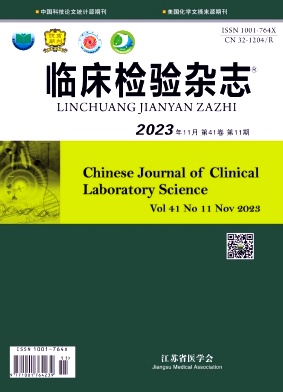The Inhibitory Effects of Cordycepin on Phosphoproteins including PI3K, Akt, and p38
引用次数: 3
Abstract
A species of Cordyceps, an ingredient in Chinese traditional medicine well-known for its major component, cordycepin (3'-deoxyadenosine), has been known to have antiplatelet effects; however, its effects on regulation of phosphoprotein have not been fully elucidated. In this study, we investigated how cordycepin regulates the phosphoprotein, including phosphatidylinositol 3-kinase (PI3K)/Akt and p38, to inhibit platelet aggregation, which are concerned with fibrinogen binding to glycoprotein IIb/IIIa (IIb/3) and granule secretion in platelets. Our finding suggests that cordycepin inhibits collagen-induced platelet aggregation with 261.1 M of IC50 and also inhibits fibrinogen binding to IIb/3 by a suppression of PI3K/Akt phosphorylation in a dose dependent manner. In addition, cordycepin further showed to inhibit collagen-induced p38 phosphorylation, reducing granule secretion (i.e. ATPand serotonin-release) and thromboxane A2 (TXA2) production without regulating cyclooxygenase-1 (COX-1) and thromboxane A synthase (TXAS) activities, as well as phospholipase C-2 (PLC-2) phosphorylation. In conclusion, these results demonstrate that cordycepin-mediated antiplatelet effects were due to the inhibition of fibrinogen binding to IIb/3 via the suppression of PI3K/Akt phosphorylation and inhibition of granule secretion & TXA2 production by suppressing p38 phosphorylation. These results strongly indicate that cordycepin might have therapeutic or preventive potential for platelet aggregation-mediated disorders, regulating the phosphoprotein, including PI3K/Akt and p38.虫草素对PI3K、Akt、p38等磷酸化蛋白的抑制作用
冬虫夏草是一种中药成分,以其主要成分冬虫夏草素(3'-脱氧腺苷)而闻名,已知具有抗血小板作用;然而,其对磷酸化蛋白的调控作用尚未完全阐明。在本研究中,我们研究了虫草素如何调节磷脂酰肌醇3-激酶(PI3K)/Akt和p38等磷脂蛋白抑制血小板聚集,而血小板聚集与纤维蛋白原结合到糖蛋白IIb/IIIa(IIb/3)和血小板颗粒分泌有关。我们的研究结果表明,虫草素抑制胶原诱导的血小板聚集,IC50的261.1M也抑制纤维蛋白原结合到IIb/3通过抑制PI3K/Akt磷酸化以剂量依赖的方式。此外,虫草素进一步抑制胶原诱导的p38磷酸化,减少颗粒分泌(即atp和5 -羟色胺释放)和血栓素A2 (TXA2)的产生,而不调节环氧化酶-1 (COX-1)和血栓素A合成酶(TXAS)的活性,以及磷脂酶C-2 (PLC-2)的磷酸化。综上所述,这些结果表明虫草素介导的抗血小板作用是通过抑制PI3K/Akt磷酸化抑制纤维蛋白原结合IIb/3,通过抑制p38磷酸化抑制颗粒分泌和TXA2的产生。这些结果强烈表明,虫草素可能具有治疗或预防血小板聚集介导的疾病的潜力,调节磷酸化蛋白,包括PI3K/Akt和p38。
本文章由计算机程序翻译,如有差异,请以英文原文为准。
求助全文
约1分钟内获得全文
求助全文

 求助内容:
求助内容: 应助结果提醒方式:
应助结果提醒方式:


